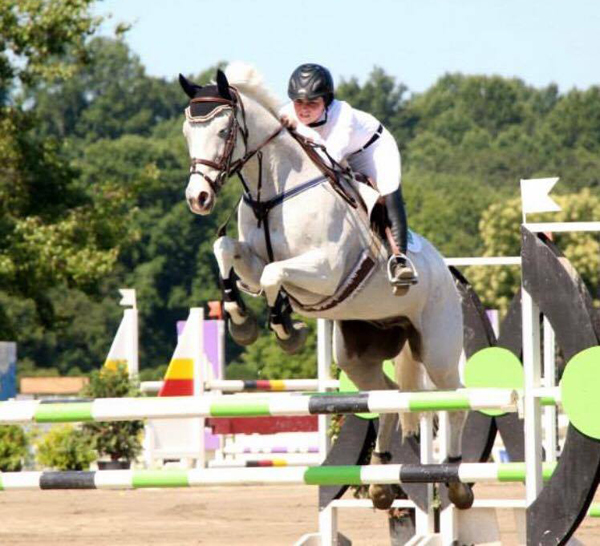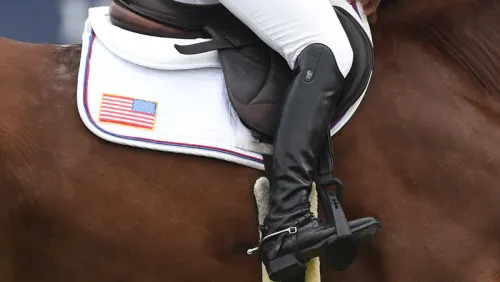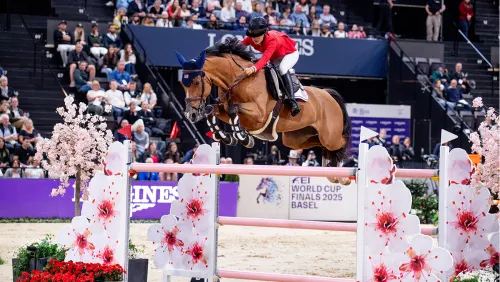Over the years, the barn has acted as my school, my church, my sanctuary and my home.
As my junior years wrapped up and I headed off to college with the amateur life looming near, I found myself reflecting on all the invaluable things the barn has taught me, both in and out of the saddle. I certainly didn’t learn all of these lessons the easy way, but hitting the dirt, literally and figuratively, has resulted in some of my most defining moments.
This is the best advice I can give to the next generation of “barn rats” as my time as a junior comes to a close.
1. Cherish every moment at the barn. When you’re young and have few responsibilities, it’s so easy to take your time at the barn for granted. Try your best not to, because once you’re a senior, you’ll realize that your years have turned into months, and soon you’ll begin a new chapter of your life called adulthood.
2. Pass left hand to left hand!!!
3. Be a horseman, not just a rider.
The horses don’t sign up for this, so take pride in taking the absolute best care of them that you can. Constantly look out for what is in the horse’s best interest—they don’t have words to tell you that they’re tired, thirsty, or hurting. It’s your responsibility to be their voice and their advocate.
4. Remember who helped you along the way in your riding career. Thank them. Especially your parents and trainer.
5. Soak up knowledge. Even if you don’t want to do this for a living, try to learn as much as you can about everything—riding theory, stable management, veterinary practice.
The more you know, the better care you can take of your horse. Take the time to learn how to wrap legs. Watch the vet do lameness evaluations. Talk to the farrier about why he’s doing what he’s doing.
Ask questions—most people will appreciate that you are interesting in learning.
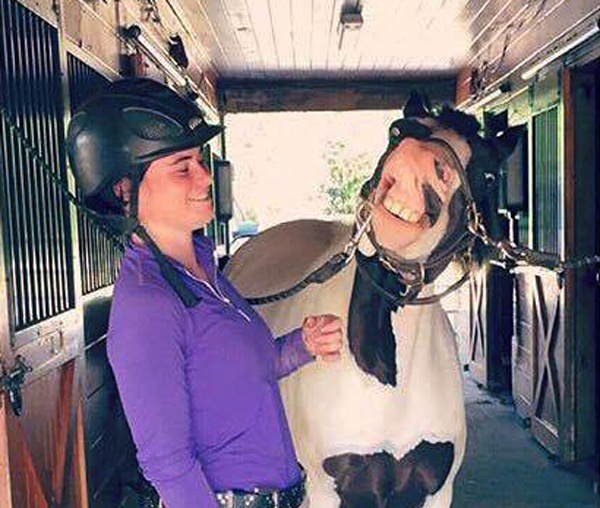
6. Remember that the reason all of us started riding in the first place is because it’s fun, and we love the animals. So if you need to take a day or two to ride in a halter or go on a meandering trail ride, that’s perfectly OK. The horses need mental days sometimes, too.
ADVERTISEMENT
7. Never, ever, get caught up in any sort of petty drama with other kids at the barn. Take that negative energy and channel it into improving your riding.
8. Ride without stirrups without being told to.
9. There is no excuse for going to a horse show poorly turned out. When you step into the show ring, you are representing your trainer and the barn as a whole.
When it comes to turn-out, your motto should be “look perfect.” It does not matter if it’s a small backyard show, or Devon. You are presenting yourself in front of a judge. Have dignity and respect. It should matter to you.
10. Stay humble—although horses have a funny way of making sure you do, anyway.
11. Be disciplined. In the saddle, work on your weaknesses without being told to even though it isn’t necessarily fun. Don’t aimlessly hack around when you aren’t in a lesson—have a plan to improve.
In the barn, keep your belongings clean and organized. Take good care of your horse even though it will take longer than just hosing off and throwing him/her in the stall.
12. Don’t burn bridges. Sometimes they will catch fire themselves. But don’t start the blaze.
13. Invest in a good video camera and get someone to video your riding. It can help enormously to see your riding for yourself.
14. Take responsibility for your mistakes. According to psychologists, defensive attribution causes us to ascribe our failures to external factors, or things that are out of our control.
So it’s human nature to say “I lost that class because the judge hates my horse,” but in reality, you probably lost the class because you chipped the first jump. Or maybe the judge does hate your horse. But if the barn hasn’t taught you that life isn’t fair yet, you haven’t stuck around long enough.
Once you own your mistakes and learn to think critically about your riding, you will improve much faster.
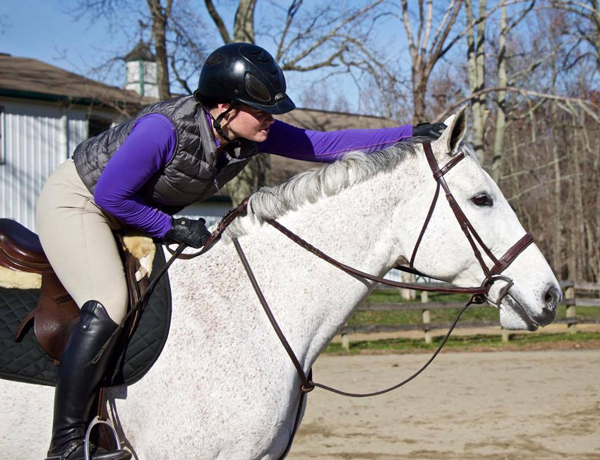
ADVERTISEMENT
15. If you see a mess anywhere—the trailer, the barn aisle, the ring—pick it up. Even if it’s not yours.
16. Always keep things in perspective. It’s extremely frustrating when your hard work doesn’t pay off or something unexpected happens.
As a very competitive person, I’ve had to remind myself that I am incredibly lucky and privileged just to be able to throw my leg over a horse’s back. Other people struggle to put dinner on the table… I think this is where we need to realize that our tribulations of having to make a horse braver or more careful are what is called “first world problems.”
17. Don’t feel entitled to anything you didn’t work for. Nothing worth having ever came easy, anyway.
18. Make peace with what you cannot change. Those who are extremely financially fortunate can afford to compete at the highest levels of the sport, year-round. The rest of us… probably not so much.
As a junior, I struggled with this. The importance of talent paled quite a bit in comparison to the importance of having enormous financial backing that was entirely unrealistic for an average middle class family like mine.
As I dabbled in the equitation, I also had to make peace with my body. My body type had never fit the ideal of very tall and thin, and sometimes that put me at a disadvantage. If you allow yourself to become resentful or bitter over the things you truly cannot control, it will thwart your passion.
19. This one will sound really cliché, but never give up, and never give in, even when the going gets tough.
Perseverance has quite literally gotten me to where I am today, and sometimes the tough horses are the ones that have the most to give you.
20. Remember this quote: “Two things define you: your patience when you have nothing, and your attitude when you have everything.”
The barn has offered me everything I need to be an honorable and hardworking individual. For that, I am eternally grateful. Behind all of my blood, sweat and tears, there is a little girl who fell in love with the sport all those years ago and never looked back.
How lucky am I to have had such an incredible place to grow up. I know the barn can do the same for all of you.
Guest blogger Meghan Holland grew up riding hunters and jumpers in New Jersey, showing mainly in the children’s jumpers and catch-riding in the junior hunters along with some equitation classes. She worked as a working student for Kim Guessford and Sandy Styzle at Sandstone Stables in Colts Neck, N.J. She is currently in her freshman year at the University of South Carolina, where she has continued her riding career.
